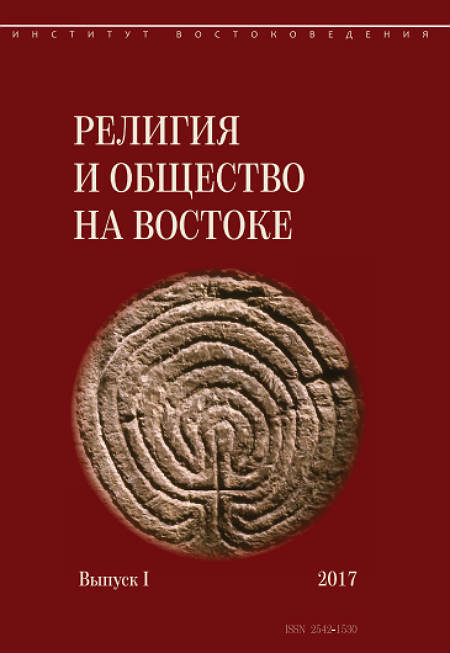Religion and Society in the East
The periodical of the Institute of Oriental Studies, Russian Academy of Sciences. ISSN 2542-1530
Issues
The religious aspect of the legitimization of the status of women empresses in the Far East (on the example of the empresses Wu Hou and Koken)
Religiia i obshchestvo na Vostoke, Issue III (2019), p. 292-327.
The main issue of this study is an comparative analysis of the religious aspect in the process of legitimization of female empresses in the far East. The examples are the Chinese ruler Wu Hou (624-705) and the Japanese Empress Koken (Shotoku, 718-770). They both actively used the Buddhist doctrines as political propaganda to legitimize their status, patronized Buddhist Sangha and took monastic vows. On the way to power, both Wu Hou and Koken faced the opposition from the court officials and powerful aristocratic clans. As a fundamental force they used the support of the Buddhist Sangha and involved the Buddhist monks in the state management as the counsellors. The inclusion in the state doctrine the Buddhist concept of the universal king-chakravartin gave a new interpretation to the traditional ideals of governance and, thereby, allowed to theoretically justify the legitimate status of these rulers in the Pro-Confucian society. They also used the cult of worshiping the Buddhist relics and their dissemination as a political propaganda, as well as the interpretation of various natural phenomena as auspicious omens. The use of religious aspects of Buddhism and, in part, Taoism and Shintoism in inner policies expressed the desire of Wu Hou and Koken to rise above the gender limitations of traditional society by the status of the universal king-chakravartin and bodhisattva, who is, due to his nature, is not limited by gender.
Keywords: medieval China, medieval Japan, Wu Hou, Koken, religious factor, supreme power, Buddhism, chakravartin, Sangha
Volume: 292-327

